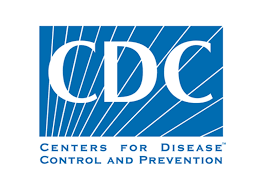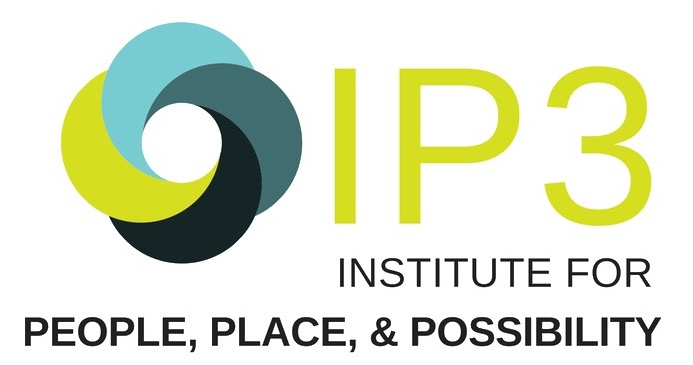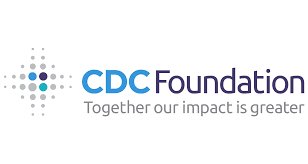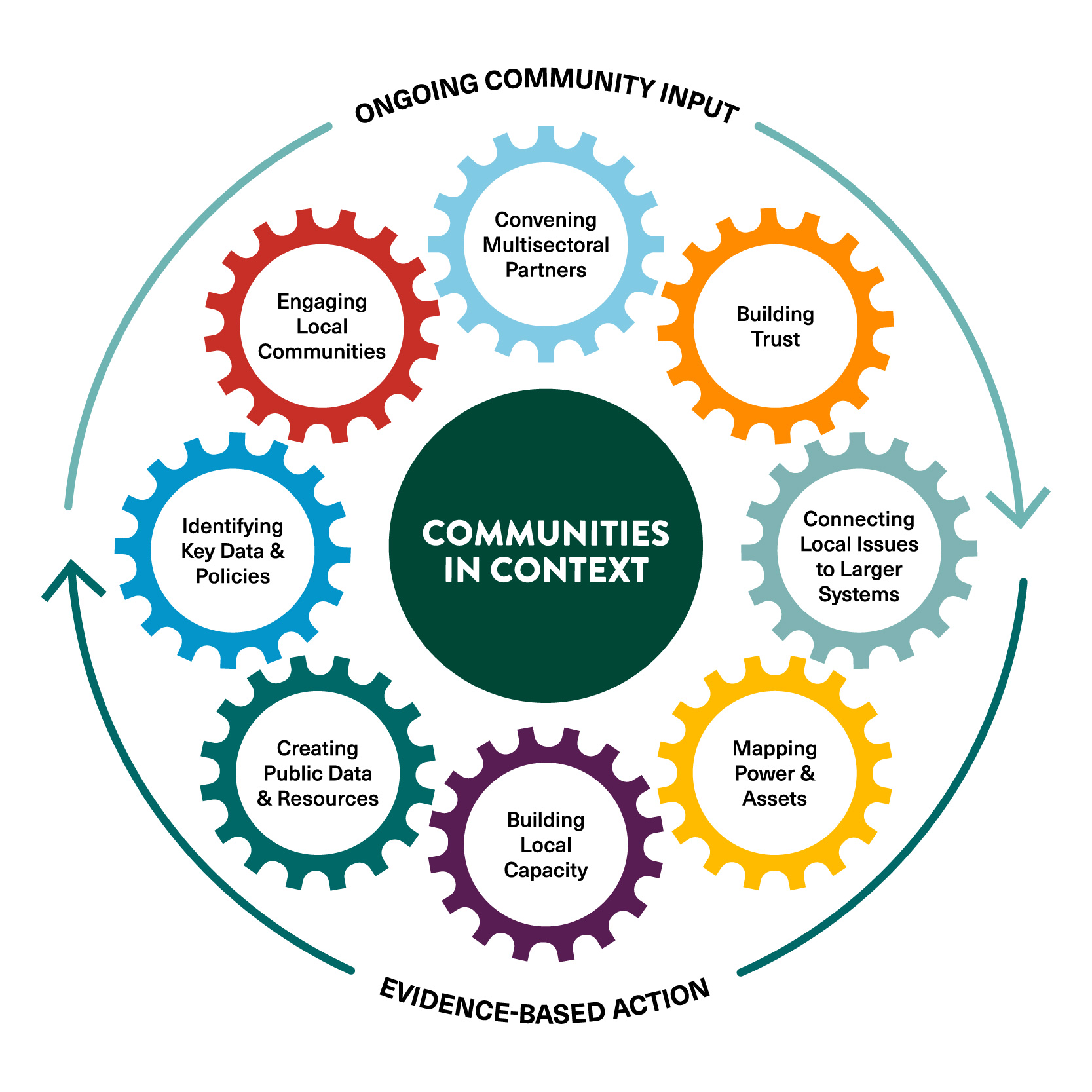ABOUT
COMMUNITIES IN CONTEXT
Powering Local Action for Health Equity
Welcome to the Communities in Context Community Commons Space! This Space brings together leading stories, strategies and data to strengthen health, well-being, and equity in Detroit. Housing and mental health, as well as the intersection of these two needs were identified by the community as the starting points for curating and sharing regional resources and data.
To learn more about multisolving strategies and local efforts you can:
- Browse all resources (i.e., articles, podcasts, video) and filter to meet your needs
- Explore housing and Vital Conditions data to grow a shared understanding, see opportunities for taking action together, and tracking progress
- …TBD for Community Voices content (UM and WSU findings)
What is Communities in Context (CiC)?
Communities in Context (CiC) is an approach to addressing health inequities that involves a unique process of gathering and sharing important local information within communities. We all want to live healthy lives. But living a healthy life is harder in some communities compared to others. This is because the conditions in the places where people live, learn, work, play, and worship affect a wide range of health risks and outcomes. A major goal of public health is to achieve health equity – a state in which everyone has a fair and just opportunity to attain their highest level of health.
CDC’s Office of Health Equity, Wayne State University, University of Michigan, and the Institute for People, Place, and Possibility (IP3) are partnering to lead CiC in Greater Detroit, Michigan. Other community partners include state and local public health departments, health systems, and community organizations.





FAQs
What is the Communities in Context Approach
As we learn more about the ways that non-medical factors influence health, public health organizations are developing more effective approaches to improve health in communities. CiC is a community-engaged approach to gathering and using local data to improve health. CiC centers community members’ voices, experiences, and perspectives as key data in decision-making. CiC considers the broader factors that influence health – from the social determinants like housing and education to the underlying structures and systems, like economic policies and racism. The figure on the right shows the key components of CiC, and how they work together to power local action.
What Do We Hope to Accomplish With You?
1. Collect and combine local information with guidance from community, including information on how power operates in the community, existing and needed resources, stories of people’s experiences, state and local health data, and key policies at the state and local levels;
2. Work with community members to use local information to define shared priorities for action that can be used by state and local public health and community leaders to improve public health decision-making;
3. Create publicly-available and user-friendly resources that communities can use to support informed action.
Who Can I Contact for More Information?
For more information on Communities in Context or to learn more about connecting your organization with this work, contact:
Michele Bolduc (qdt5 at cdc.gov) or Rashid Njai (hgo7 at cdc.gov).
If you’d like to learn more about the technology and data frameworks supporting collaborative groups learning and acting together visit the Institute for People, Place, and Possibility (IP3)
COMMUNITY
Voices
BROWSE ALL
Resources
EXPLORE
Data
Suggest Content
Help us grow this content library. Suggest a resource for inclusion. Complete the form below and our team will review your submission.

